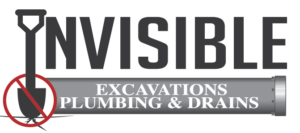If you’re a homeowner, you’re probably going to encounter a plumbing problem at some point or another. The best way you can be prepared is to learn about some of the common problems, so that you can identify them when you see them. Here are just a few of the most common problems that homeowners face during the colder months:
Frozen Pipes:
Probably the most common winter plumbing problem out there! Water damage and damage from freezing account for a collective 22% of all homeowners insurance claims — totaling about $1 billion in claims each year — and when you put these two problems together, you have one big plumbing catastrophe on your hands. Pipes will freeze when high water pressure combines with freezing temperatures, thereby causing the water inside the pipe to freeze and expand. Once the temperature drops below 20 degrees Fahrenheit, pipes run the risk of freezing. The pressure of the ice will cause the pipe to crack, and even a tiny, three-millimeter crack can cause over 250 gallons of water to escape per day.
Water Heater Breakdowns:
Even if it doesn’t result in water damage issues, you definitely don’t want to deal with a broken water heater in the middle of winter. Sediment can build up and cause problems in water heaters during the winter, so it’s important to have regular plumbing inspections before sediment builds up too much. Although the same problem can occur in the middle of the summer, it’s not such a problem to be without hot water for a few days.
Sewer Line and Septic Tank Problems:
Problems in your sewer lines and septic tank can occur at any time, but in the winter, it can be more difficult to fix these problems. When the ground is frozen and/or covered with ice and snow, the task of repairing or replacing this underground equipment can take a long time. This is something that should be addressed during a regular plumbing inspection before it gets cold.
The best way to keep your plumbing system running smoothly is to have a professional plumbing inspection done before problems occur. But if you end up with a frozen pipe or a broken water heater, don’t wait to call up your local plumber for help!

